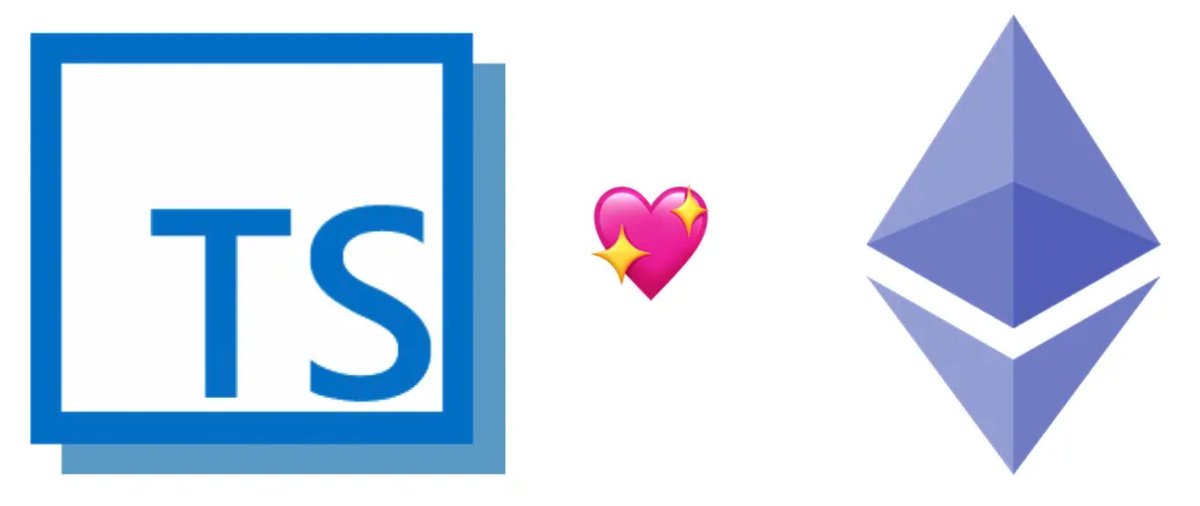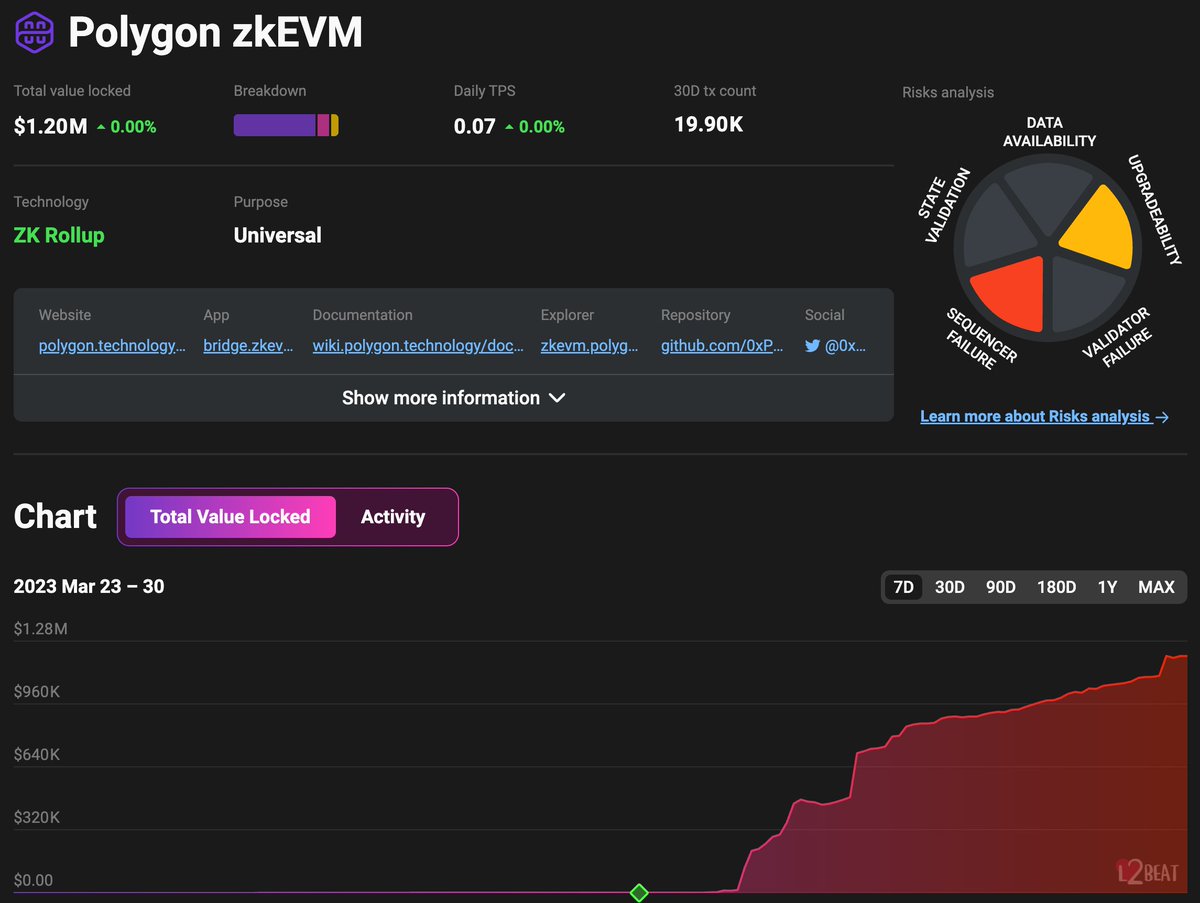
Engineering @phoenixlabsdev, Contributor to @sparkdotfi ⚡️
Cofounded @l2beat, TypeChain and some more.
Fluent in JavaScript as well as Klingon.
2 subscribers
How to get URL link on X (Twitter) App


 2/ TypeChain is probably the most impactful open-source tool that I've built so far. It appeared just in time (~2018) to help developers migrate to this new, cool language called TypeScript.
2/ TypeChain is probably the most impactful open-source tool that I've built so far. It appeared just in time (~2018) to help developers migrate to this new, cool language called TypeScript.

 2/ First things first, why not simply speed up L1? Ethereum processes ~2.5M gas units per second. Why not amp it up to 10M? Decrease the block time at the same time? Why BTC and ETH communities are too dumb to see it?
2/ First things first, why not simply speed up L1? Ethereum processes ~2.5M gas units per second. Why not amp it up to 10M? Decrease the block time at the same time? Why BTC and ETH communities are too dumb to see it? 


 🅰️ Polygon zkEVM pushes L2 Tx data to L1 (like optimistic rollups). From, to, value – it's all there! Check out this batch submitted by a sequencer: etherscan.io/tx/0x19e45aaef… You can even grep for L2 addresses!
🅰️ Polygon zkEVM pushes L2 Tx data to L1 (like optimistic rollups). From, to, value – it's all there! Check out this batch submitted by a sequencer: etherscan.io/tx/0x19e45aaef… You can even grep for L2 addresses! 

 First of all — YES, Arbitrum network in more popular. It has about 35% more txs, a bigger state and so on. However, that doesn’t explain why it takes *~10x* longer to sync. /2
First of all — YES, Arbitrum network in more popular. It has about 35% more txs, a bigger state and so on. However, that doesn’t explain why it takes *~10x* longer to sync. /2

 1/ Fuel v1 is a (very first!) optimistic rollup running on top of Ethereum. It uses the UTXO model to make tx execution parallel. But for sake of this discussion, it is interesting because of a few other reasons:
1/ Fuel v1 is a (very first!) optimistic rollup running on top of Ethereum. It uses the UTXO model to make tx execution parallel. But for sake of this discussion, it is interesting because of a few other reasons: 

 2/ Okay, so how does it work? First, a user burns DAI on domain A. Then by providing an oracle attestation of the burn, they can mint fresh DAI on domain B. And... that's it!
2/ Okay, so how does it work? First, a user burns DAI on domain A. Then by providing an oracle attestation of the burn, they can mint fresh DAI on domain B. And... that's it! 

 2/ First, things first — sequencers are privileged actors in many rollup systems (@optimismPBC , @arbitrum, @StarkWareLtd , @zksync ). They receive transactions from users, order them and submit them in batches to L1.
2/ First, things first — sequencers are privileged actors in many rollup systems (@optimismPBC , @arbitrum, @StarkWareLtd , @zksync ). They receive transactions from users, order them and submit them in batches to L1.

 2/ Let me start with similarities, they both:
2/ Let me start with similarities, they both:
